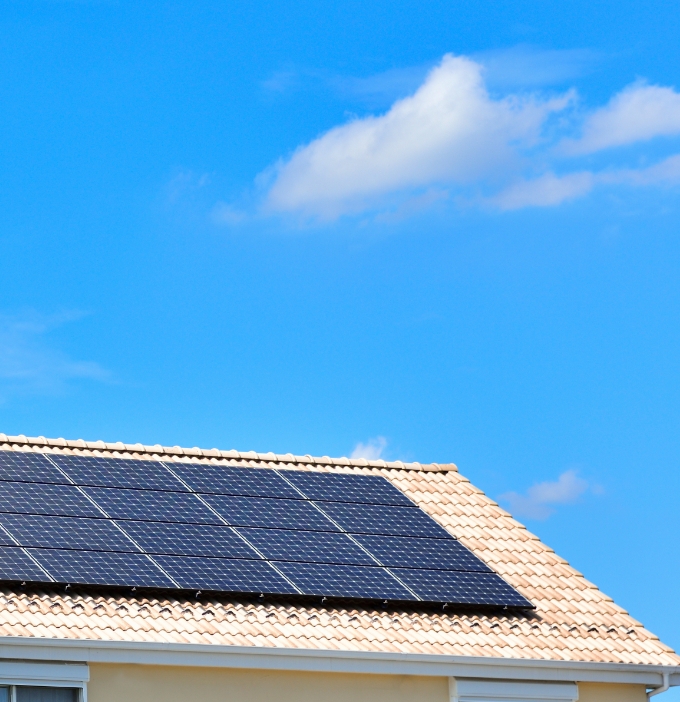
Scams come in many forms, and they are becoming more sophisticated and difficult to detect. They can affect your finances and more. Some scammers, knowing how rightfully trusted we are by our members, use that trust to pose as representatives of EnergyUnited. But we’re here to help.
The good news is that there are steps you can take to protect yourself. Knowing the different types of scams, how to identify them and what to do (and not do) when you encounter them, can make a world of difference. Read on to learn how to protect yourself from scammers.
Click to learn more

SPOOFING
One of the most common types of scams is spoofing. The scammer will disguise, or spoof, an email address, sender name, phone number, or website URL—often just by changing one letter, symbol, or number—to convince you that you are interacting with a trusted source.
TIPS
-
Closely inspect email addresses, names, URLs, and phone numbers to make sure communication is actually from EnergyUnited or another legitimate source.
-
Never respond to emails or texts from unrecognized sources.

Phishing
Phishing and spoofing often go hand-in-hand. Phishing refers to any electronic or phone communication that attempts to “bait” you–that is, trick you–into giving out sensitive personal or financial information. Often, phishing emails or texts will include a link that may contain a virus designed to access such information.
TIPS
-
Don’t click on anything in an unsolicited email or text message.
-
Remember that EnergyUnited and most other organizations will never contact you to ask for your username or password.

Door-to-door
Some scams take place in person. Door-to-door scams are similar to spoofing, in that scammers will usually claim to be someone they are not. Door-to-door scammers can make many claims, often culminating in a request for payment or sensitive information.
TIPS
-
As with many organizations, any EnergyUnited employee visiting your home to provide service will always carry an ID badge, wear an EnergyUnited shirt, and drive an EnergyUnited work truck. If you ever doubt the identity of someone visiting your home, do not allow them inside. If they are claiming to be an EnergyUnited employee, call 1-800-522-3793 immediately to verify.
-
If someone comes to your door saying that you need to pay them or your electricity service will be disconnected, this is a scam. Do not pay them. In instances of nonpayment, we will notify members with a bill, then a written disconnect notice, and finally with an automated phone call prior to disconnecting service.

ROMANCE SCAMS
When a scammer adopts a fake online identity to gain a victim’s affection and trust, this is known as a romance scam. These scammers are often very skilled at seeming trustworthy and genuinely affectionate. After gaining trust, they will make false plans to meet in person (and possibly even marry) and eventually ask for money or sensitive information.
TIPS
-
If a complete stranger contacts you via email or social media in a way that seems overly personal and affectionate, it is very likely a scam, so steer clear. This can also happen on legitimate dating apps and websites. If something seems off, it probably is.
-
Never send money to someone you met on the internet and have never met in person.

CHARITY SCAMS
Some scammers will appeal to people’s empathy and kindness by pretending to be part of a charity. They may make up a charity or falsely claim to represent an established well-known charity. Knowing that most people have the desire to help, they will convince victims to send them money.
TIPS
-
The best way to avoid charity scams is to decide for yourself what organizations you’d like to donate to and seek them out yourself. EnergyUnited is involved in many local and regional causes, so check out our Giving Back page to see some of the organizations we work with, and consider donating or getting involved.
-
If you get a phone call or email about a charity you’ve never heard of, research that charity on your own rather than giving money then and there.

DEBT COLLECTOR SCAMS
Rather than appealing to the target’s kindness, debt collector scams appeal to their fear and anxiety. Only a quarter of Americans are debt-free, so a common tactic scammers use is to scare people into giving them money by claiming they are collecting on debts. They will try to scare people by claiming that they will face dire consequences, such as prison time if they do not pay the debt right away.
TIPS
-
Don’t pay anyone over phone, text or email for debts. Tell the supposed debt collector that you need everything in writing and mailed to you. EnergyUnited will always mail a written notice of delinquent payments and a scheduled disconnection date.
-
If someone is using scare tactics such as prison time or threatening to go after family members for the money, that’s a pretty surefire sign that you’re dealing with a scammer.

ELDERLY SCAMS
When any type of scam intentionally targets senior citizens, this is known as elder fraud. For various reasons (and by no fault of their own) senior citizens are sometimes more susceptible to scams. Often it is a lack of experience with digital technology that makes them particularly vulnerable. Scammers are aware of this, and they use it to their advantage.
TIPS
-
If you are contacted out of the blue by someone you don’t know about anything involving money or sensitive information, it is best to steer clear.
-
When in doubt–especially when using technology you’re not fully comfortable with–check with a trusted family member or friend who may have experience or insight. If any suspicious communication claims to be from an EnergyUnited representative, call 1-800-522-3793 right away.

IMPOSTER SCAMS
Many of the other scams we’ve discussed fall under the umbrella of imposter scams. Anytime someone is claiming to be someone they are not–or claiming to represent an organization that they don’t actually represent–they are engaging in an imposter scam.
TIPS
-
Anytime someone claims to represent a government agency and they are asking for money, that’s a red flag. For example, the IRS will never call you to collect back taxes. They do everything in writing.
-
If it sounds shady, it probably is. Anyone who calls you asking for money or sensitive information is probably not who they say they are. Immediately call 1-800-522-3793 if you encounter any kind of suspicious person or communication that claims to represent EnergyUnited in any capacity whatsoever.

MAIL FRAUD
That letter you got claiming that you’ve won sweepstakes and all you have to do to claim your money is pay a small fee? That’s a scam. Anytime a scammer tries to procure money or sensitive information through the mail, they are committing mail fraud.
TIPS
-
Anytime you receive an unexpected piece of mail requesting that you send money or sensitive information through the mail, throw it out. That’s fraud. If you receive suspicious mail claiming to be from EnergyUnited, contact us to report it.
-
If you didn’t enter a sweepstakes or buy a lottery ticket, you haven’t won a sweepstakes or the lottery. Any letter saying otherwise is a scam.

MORTGAGE CLOSING
Particularly sophisticated and increasing in frequency, mortgage closing scams attempt to divert homebuyers’ closing costs and down payments into fraudulent accounts. These scams can appear legitimate and could cost you thousands upon thousands of dollars.
TIPS
-
Only wire money for your homebuying transactions in close cooperation with trusted parties such as your realtor, settlement agent, or lawyer.
-
Never email financial information.

SOLAR SCAMS
Over the last few years the residential solar energy industry has expanded significantly and with it federal and state regulators have received an increase in consumer complaints. Customers have been deceived about costs and savings, misled about loans and tax credits, and pressured by aggressive sales and marketing tactics.
TIPS
-
Watch out for sale pitches that claim to be a government program
-
Obtain several estimate
-
Do not pay large upfront cost
-
Please read through the below Consumer Advisory pdf to be fully informed
